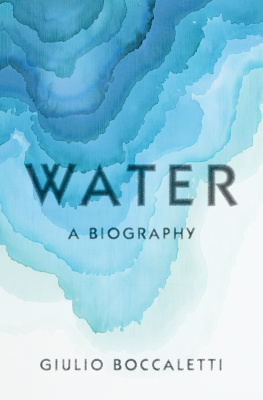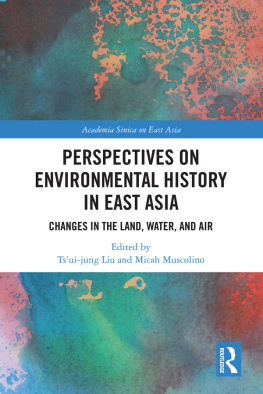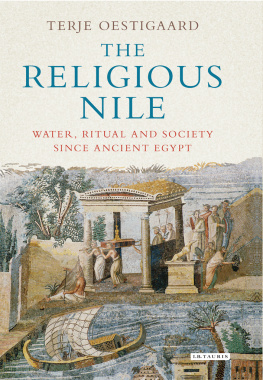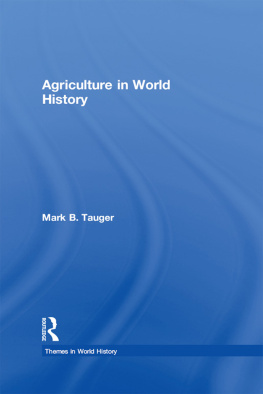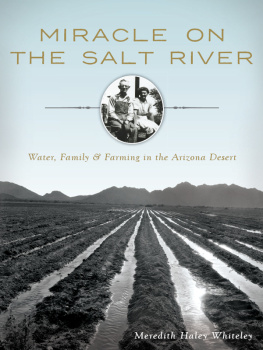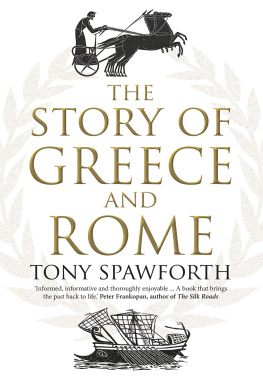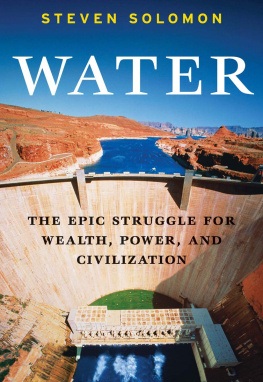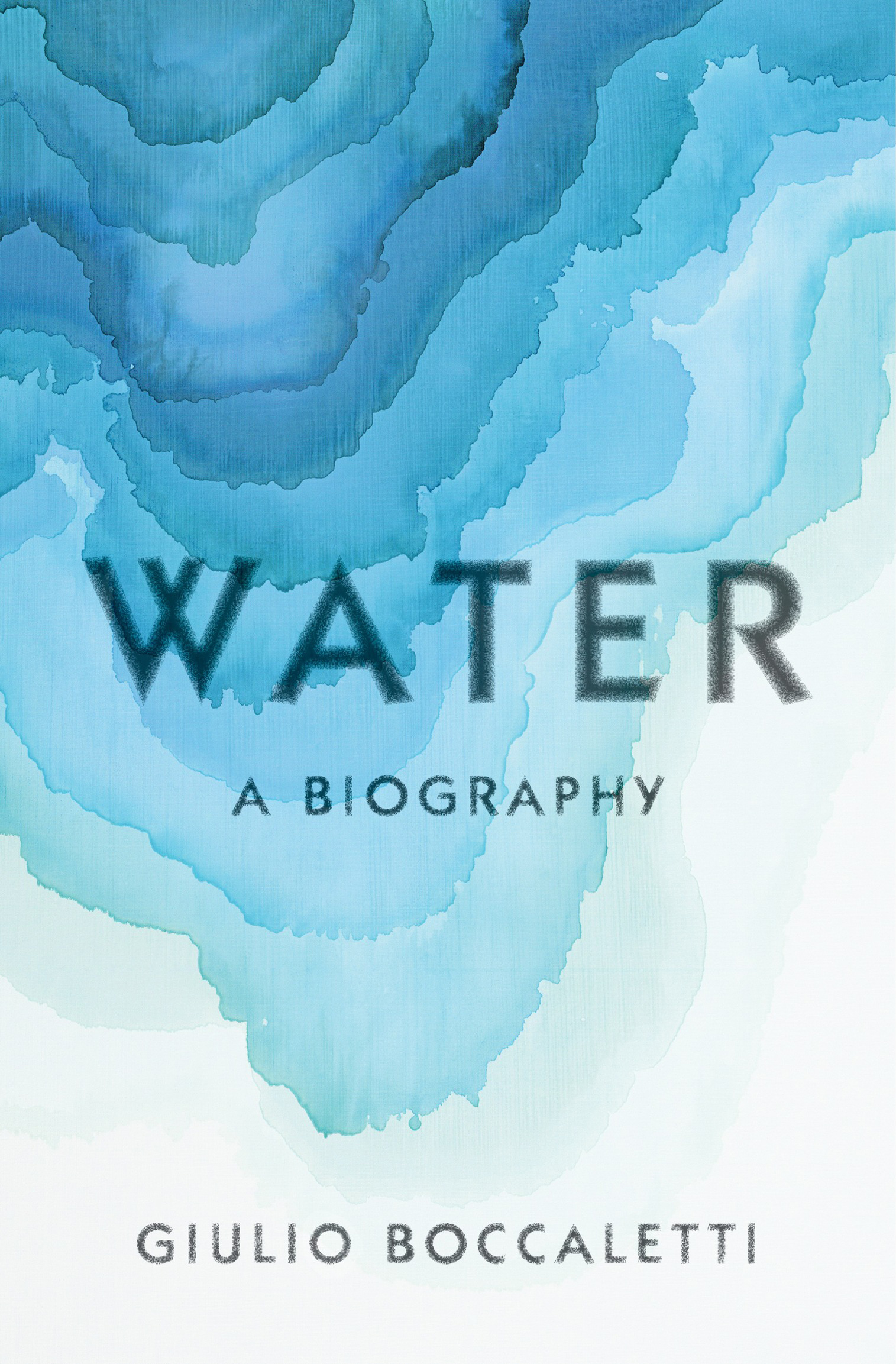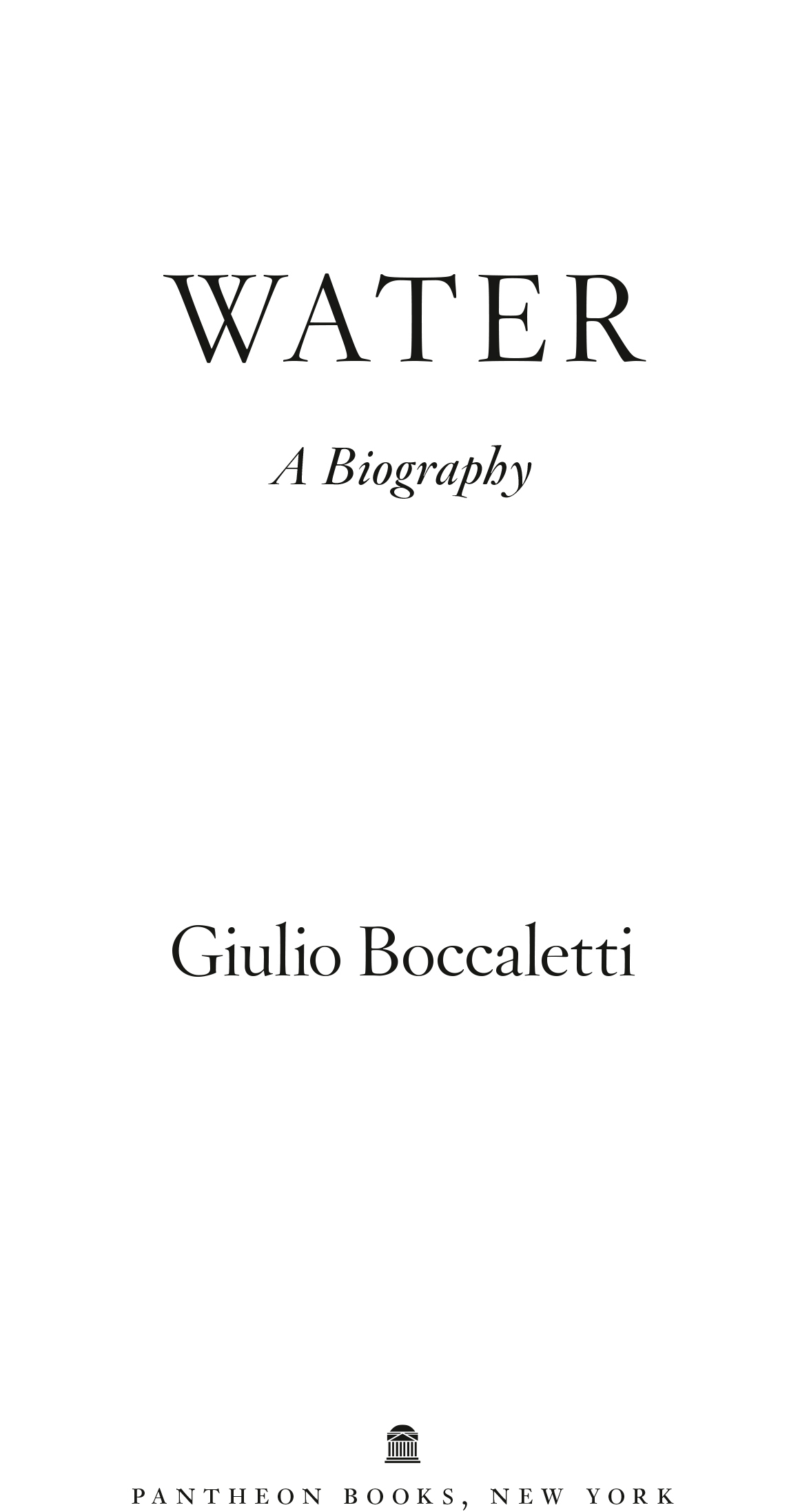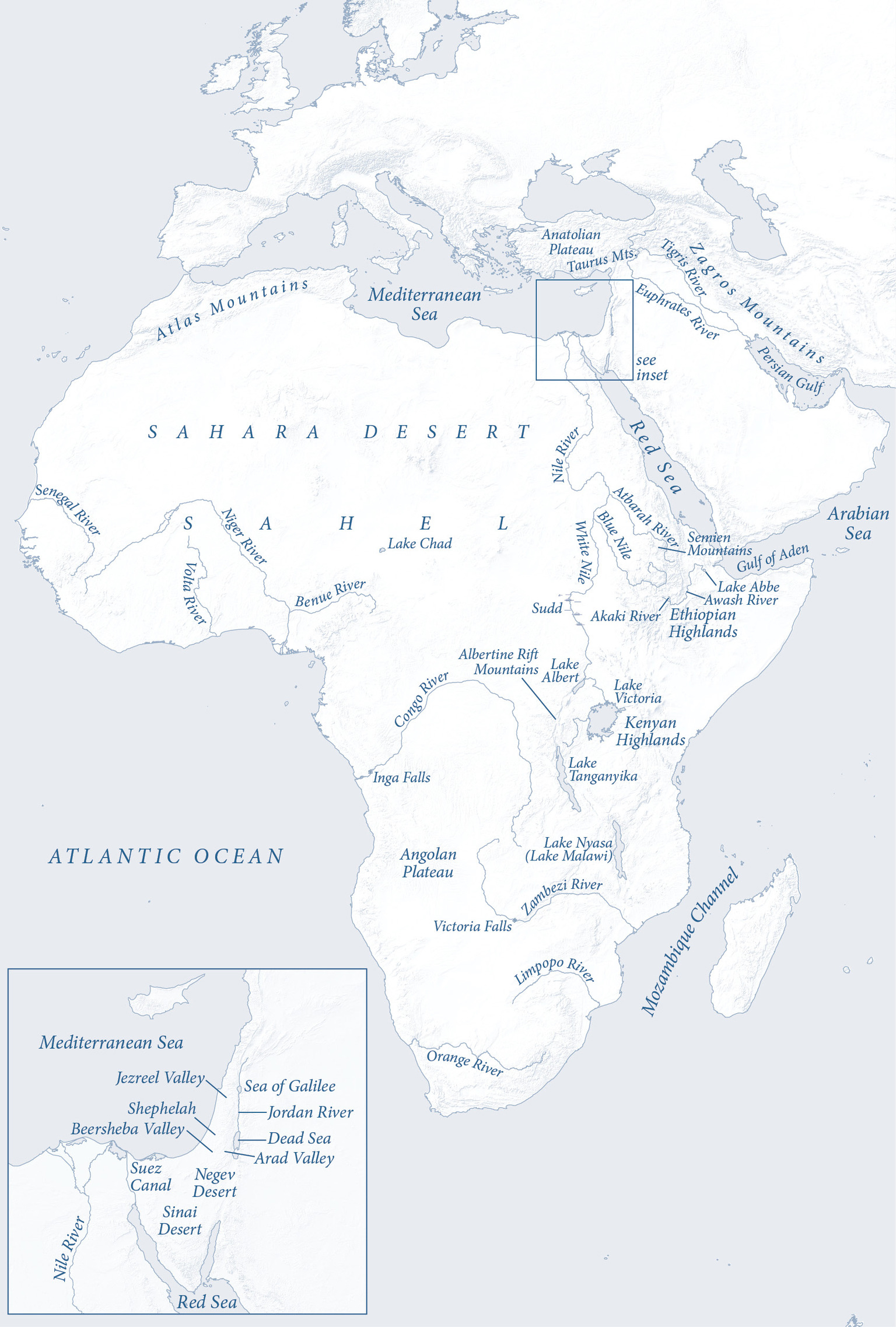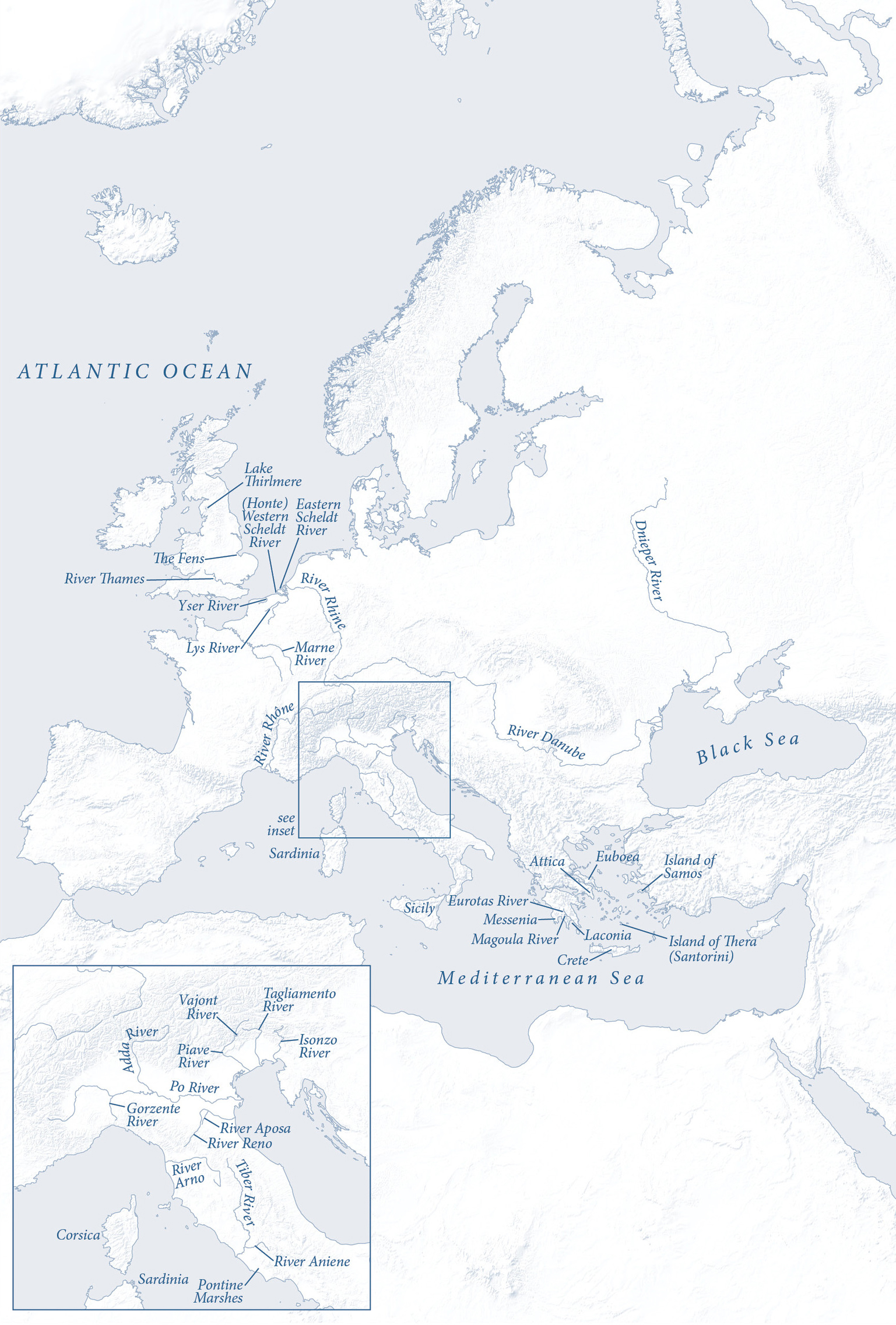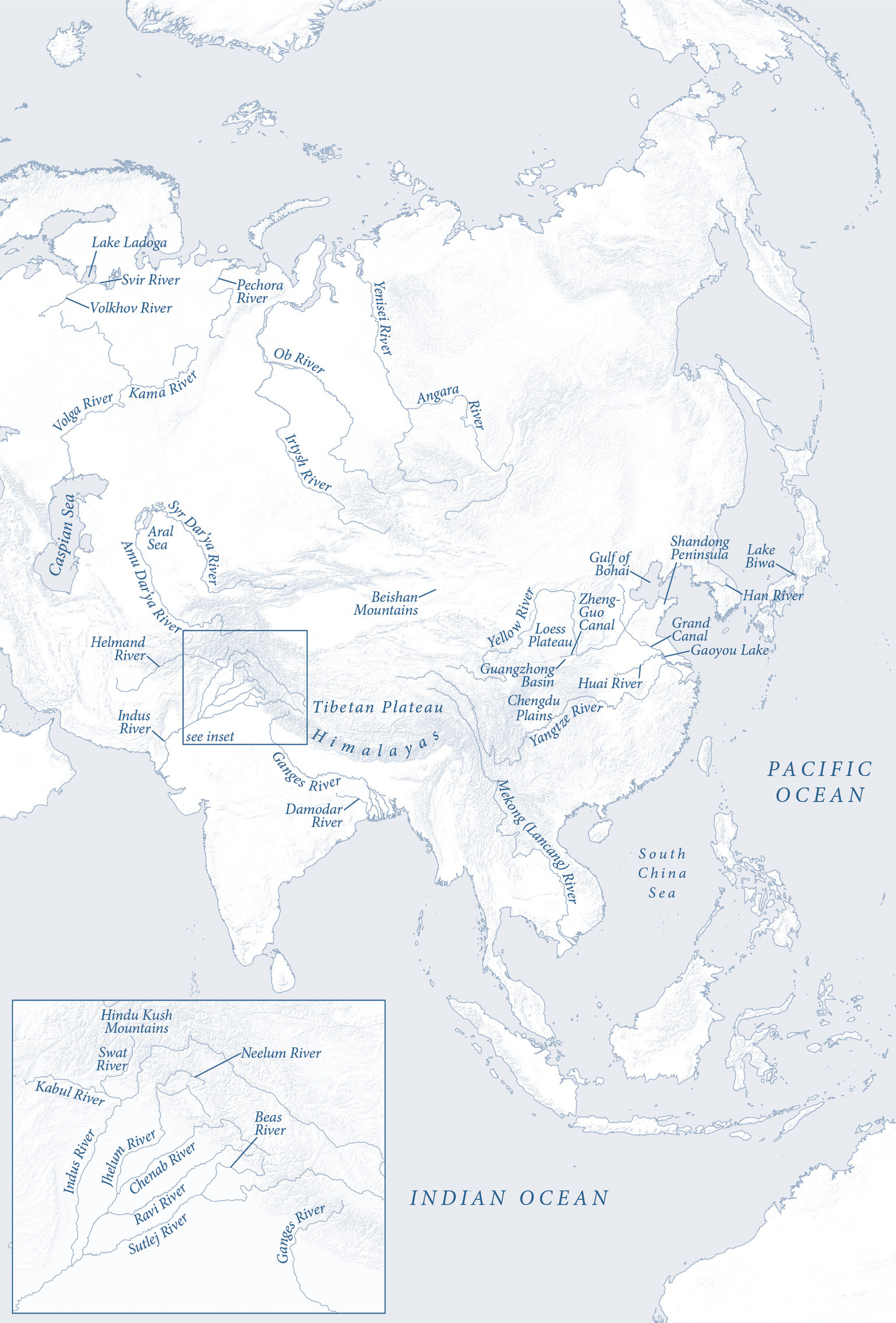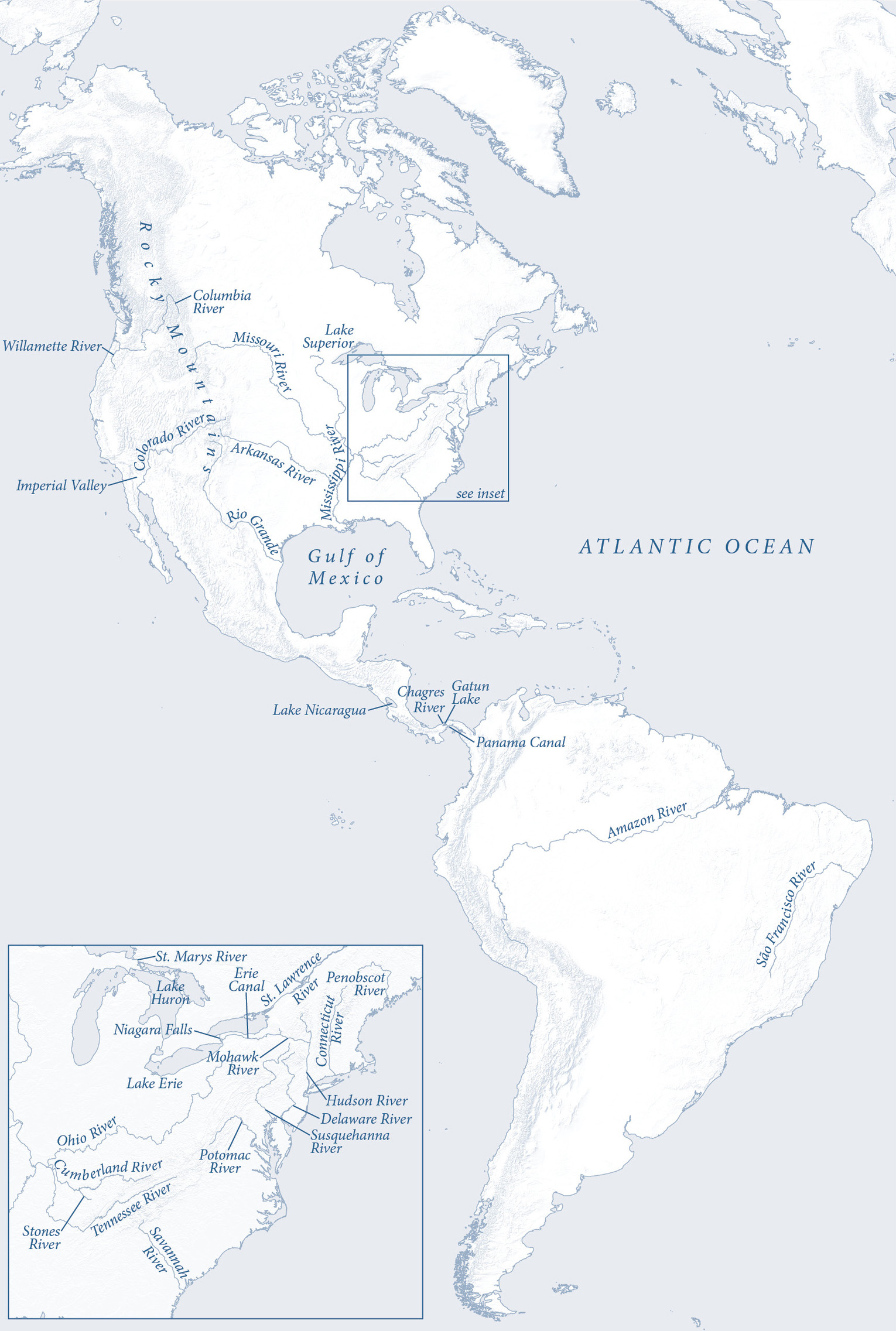Contents
Landmarks
Print Page List
Giulio Boccaletti makes a strikingly original and persuasive case that the history of human civilization can be understood as a never-ending struggle over water. His command of a vast range of material, across time and space, is astonishing.
Nicholas Lemann, Columbia University Graduate School of Journalism
It was an inspired idea to write a biography of water and Boccaletti has carried it off in style. His book is impressively global in scope. It ranges from the earliest human societies to questions of water security in our own time, combining bold lines of argument with compelling examples. Ambitious, assured, and very well written, this is an impressive and very welcome addition to the literature.
David Blackbourn, Vanderbilt University
In this deeply researched and vivid story, Boccaletti deftly reveals how the struggle to master water is also the root of all organized society. From antiquity to todays precipice of water scarcity, he spins a dramatic, sweeping story that forces the reader to reappraise all of human history through a water lens. A transformative, dramatic, and revelatory tale of how our struggle to master water defines us as humans. John Bredar, WGBHBoston
What makes this fascinating book stand out from other accounts of how water has shaped human history across the ages is Boccalettis brilliant and nuanced treatment of the political and economic dimensions of waters role in history. The breadth and substance of the narrative are outstanding. The book is a tour de force!
Michael Hanemann, Arizona State University
The story of Water is our story. Boccaletti takes us on an extraordinary journey through water history, from the retreating glaciers of the ice age that shaped the landscape and the livelihoods of local communities to the emergence of nation states and the industrialized world, presided over by democrats, despots, and dreamers. This book is a cautionary tale for our times.
Alan Yentob, BBC producer and presenter
As humanity strays across planetary boundaries, Boccalettis political biography of water is essential reading. This bold and ambitious saga offers important lessons and instils humility in the reader, both of which we need as we face the dangers of increasing pressure on nature, climate change, and corrosive inequality.
Rachel Kyte, The Fletcher School, Tufts University
A dazzling tale spanning millennia, geography, science, and human civilizations that is more than the story of water. It is a story of ideas and institutions, of tensions between individual enterprise and collective action, of human needs and planetary dynamics. I am astonished at its breadth, depth, and scholarship, at once encyclopaedic yet also highly readable.
Lynn Scarlett, The Nature Conservancy
Magisterial. Boccaletti has pinned down our complex relationship with our most vital resource. We live, like the ancients, in a hydraulic civilizationone determined to a remarkable degree by where and when we can find water. As he reveals with startling clarity, we face a water crisis as profound as our climate crisis. The fate of the Anthropocene hangs on the fate of water.
Fred Pearce, author of When the Rivers Run Dry
Excellent. Boccaletti takes the reader on a polyglot tour de force that shows how the flow of human history, economics, and geopolitics is utterly connected to the constant blue thread of our need for water. His book poses challenging questions about how best to secure our water future and, as a result, ensure our very existence.
Dominic Waughray, World Economic Forum
Water could have no better biographer than Boccaletti, who takes us on a fascinating journey, telling the story of how humanitys interactions with this most precious resource has shaped our history and our present, and will define our future. Brilliant and enlightening.
Eric D. Beinhocker, University of Oxford
Copyright 2021 by Giulio Boccaletti
All rights reserved. Published in the United States by Pantheon Books, a division of Penguin Random House LLC, New York, and distributed in Canada by Penguin Random House Canada Limited, Toronto.
Pantheon Books and colophon are registered trademarks of Penguin Random House LLC.
Library of Congress Cataloging-in-Publication Data
Name: Boccaletti, Giulio, [date] author.
Title: Water : a biography / Giulio Boccaletti.
Description: First edition. New York : Pantheon Books, 2021. Includes bibliographical references and index.
Identifiers: LCCN 2020037044 (print). LCCN 2020037045 (ebook).
ISBN 9781524748234 (hardcover). ISBN 9781524748241 (ebook)
Subjects: LCSH : WaterHistory. Water.
Classification: LCC GB 659.6 . B 63 2021 (print) | LCC GB 659.6 (ebook) | DDC 909dc23
LC record available at lccn.loc.gov/2020037044
LC ebook record available at lccn.loc.gov/2020037045
Ebook ISBN9781524748241
www.pantheonbooks.com
Maps by Mapping Specialists, Ltd., Madison, WI
Cover image: Vista, painting by Tobias Tovera 2016
Cover design by Linda Huang
ep_prh_5.7.1_c0_r0
For Andrea
Contents
Prologue
On July 19, 2010, a Monday evening, water came crashing down the Yangtze River. Intense rain from the East Asian monsoon hit southwest China. Water poured from the sky. As Monday turned into Tuesday, the flood roared down: every second, seventy thousand cubic meters of water came through, equivalent to thirty Olympic-size swimming pools. In the past, water would have collected in the river, gushing between the rocky banks of three incised gorges in the middle of the mainstem above the city of Yichang. The swollen river would have then overwhelmed the embankments, flooding the plains downstream. Instead, that night the current gently slipped into a wide lake near the city of Chongqing, far above those three incised gorges, oozing out as the crest of the flood dissipated. Six hundred kilometers downstream, the water level in the reservoir rose by four meters, held back by twenty-eight million cubic meters of concrete. Nothing more happened. Three Gorges Dam had passed its first real test.
The plan to build the largest dam in the world had been green-lit in 1992, under Chinese premier Li Peng. The approval had not been without controversy. Li had trained as a hydroelectric engineer in the Soviet Union. He had pushed to get the project commissioned despite concerns for the relocation of one and a half million people, and for the loss of ecosystems and historical artifacts. Eventually, a majority of the National Peoples Congress voted for the construction. Work began in 1994. Only nine years later the reservoir began filling, ahead of schedule and under budget.

